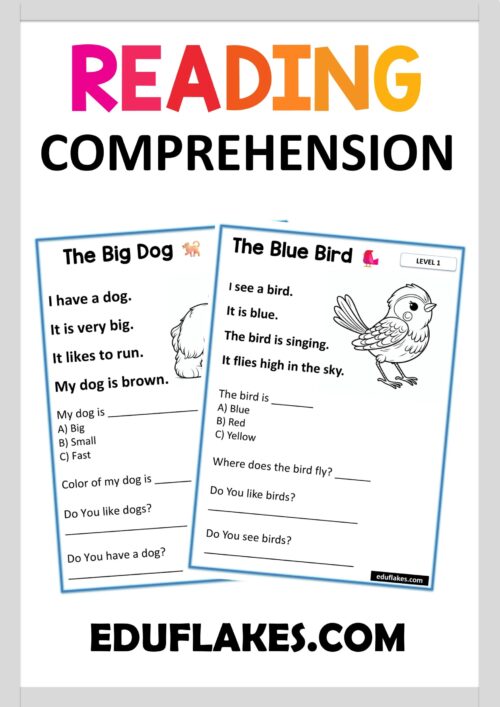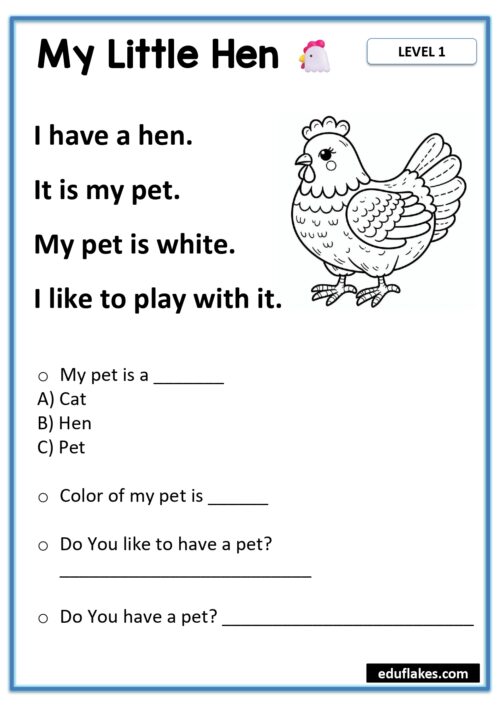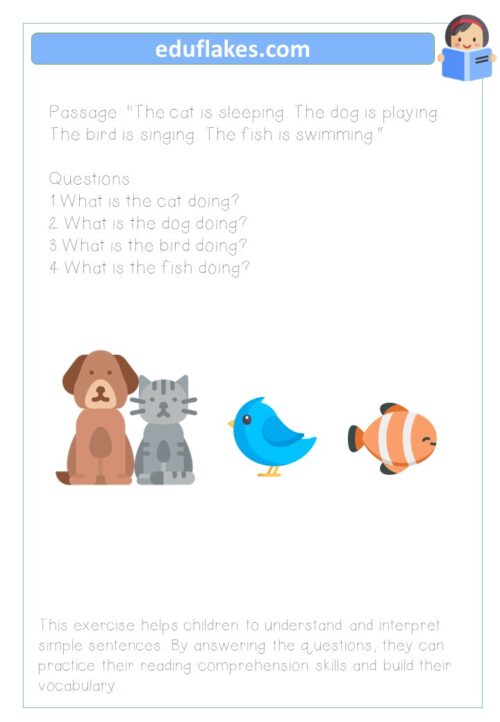English Comprehensions
Reading comprehensions are an essential aspect of developing reading skills and improving overall literacy. They help students of all ages, from kindergarten to high school, to practice and refine their reading comprehension strategies, skills and tests. Reading comprehensions provide valuable exercises for students to engage with and understand written text, building their comprehension skills and increasing their knowledge.
Printable reading comprehensions are an accessible and effective way for students to practice their skills, with a wide range of passages available for all levels, from elementary reading comprehension to high school. By answering reading comprehension questions, students can demonstrate their understanding of a text, making connections and synthesizing information.
Incorporating reading comprehensions into a student’s daily routine can also improve their ability to process and retain information, as well as enhance their critical thinking skills. By working through reading comprehension passages, students can develop their understanding of the author’s purpose, tone, and intended meaning, as well as identify and analyze key details.
In conclusion, reading comprehensions play a crucial role in developing a student’s literacy skills and providing them with a foundation for success in both academic and real-world settings. Whether through printable reading comprehensions or engaging with reading comprehension exercises, students of all ages can benefit from the practice and refinement of their reading comprehension skills.
Improving a child’s English reading skills can be a gradual process, but there are several strategies you can use to help them along the way. Here are some effective ways to improve a child’s English reading skills:
- Start Early: Encourage your child to read from an early age and make it a fun and enjoyable experience.
- Read Aloud to Your Child: Reading to your child helps them learn new words, sentences and stories and also strengthens their listening and comprehension skills.
- Encourage Independent Reading: Give your child access to age-appropriate books and encourage them to read on their own.
- Help Them with Vocabulary: Teach your child new words, explain the meanings and help them practice using them in sentences.
- Discuss What They’re Reading: Ask your child questions about the books they are reading to help them understand the material and retain information.
- Make Reading a Part of Your Daily Routine: Encourage your child to read every day, either alone or with you.
- Support Them with Resources: Provide your child with resources such as books, educational games and reading comprehension exercises to help them develop their skills.
- Use Technology: Encourage your child to use digital resources, such as educational apps, audio books, and e-books, to supplement their reading experience.
- Be a Role Model: Show your child the importance of reading by reading yourself and talking about what you are reading.
By implementing these strategies and being consistent and patient, you can help your child develop their English reading skills and encourage a lifelong love of reading.
Showing all 3 results
-
Kindergarten English Comprehension
Activities -
Unseen reading passages and comprehension grade 2
English Comprehensions





